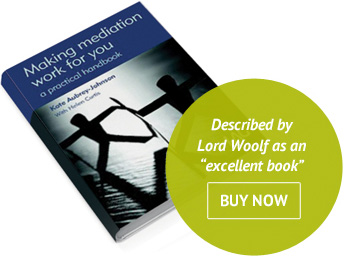BLOG
Generalist or specialist Mediator? By Dr Mary Malecka
November 26, 2020
It is harder to be a facilitative mediator when one has specialist knowledge in the field. It is harder to stand back and divest oneself of that specialist knowledge and listen to what is being said without filtering it through one’s own knowledge and views of the subject of the mediation.
Evaluative mediation, adjudication, and early neutral evaluation are a different matter; there, specialist knowledge is a requirement.
Fundamental to facilitative mediation, is listening to the parties voice their own needs and interests to the mediator and to each other, and in so doing articulate for themselves what their needs and interests are. Also fundamental to mediation is that each party hear the other side voicing the problem that has brought them to the mediation and feel that they are heard by the other side also.
One needs a degree of knowledge about the subject matter of the mediation, but not be so imbued with the culture of the subject field that one does not see the broader picture from a neutral perspective, nor be affected by one’s own perceptions and views. When one has specialist knowledge of the subject matter of the mediation considerable discipline is required to stand back when listening, and not to give indications of one’s own perceptions and judgements and views by an inadvertent shrug of the shoulders, a facial expression, a tone of voice.
Mediation to the writer’s mind, is not about money, it’s not about the construction site, it’s not about the transaction between the client and professional nor the customer and the supplier; it is always about people. When a teacher is asked what they teach, the correct answer is not “Physics”, the correct answer is “students”; likewise, a mediator is mediating between people, and the mediation is about their communications or lack of communication, their aspirations, their personalities, their personal and emotional make up and experience. It is about them as people: one has felt deskilled, another has felt undervalued, another offended or disrespected, disappointed or felt betrayed.
A mediator will listen to and illuminate the differences and gaps between the different accounts of the problem that has brought them all to the mediation. Through intuition, creative thinking, encouragement, kindness, a love of the process, the mediator will listen to and hear what they are saying, manage the process, help them to identify solutions and to construct bridges over the gaps between their different perspectives, needs and interests. A mediator will help them to identify future areas of dispute so that they can allow for these in their settlement agreement at the end of the day.
The ability of the facilitative mediator to listen and hear, to manage and help is enhanced when the mediator is a generalist. The parties may demonstrate their specialist knowledge leaving the mediator unencumbered, to support the process.

